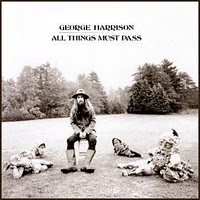 George Harrison emerges from the fractured Beatles with a winner on all fronts. The thing that struck me originally and keeps me coming back to All Things Must Pass is the huge, layered sound achieved by Phil Spector, wrapping the songs in a blanket that is cavernous and drafty, but awesomely lush as well. Tracks like “Let It Down”, “Art Of Dying”, and “Wah-Wah” are immense, echoing epics, while mellow cuts such as “I’d Have You Any Time”, “Run Of The Mill”, and “Behind That Locked Door” warm and inviting. Harrison lets his spirituality permeate the set of songs here, potentially a turn off, but his delivery is so affable and the songs so good that it only serves to unify and add substance the album as a whole. –Ben
George Harrison emerges from the fractured Beatles with a winner on all fronts. The thing that struck me originally and keeps me coming back to All Things Must Pass is the huge, layered sound achieved by Phil Spector, wrapping the songs in a blanket that is cavernous and drafty, but awesomely lush as well. Tracks like “Let It Down”, “Art Of Dying”, and “Wah-Wah” are immense, echoing epics, while mellow cuts such as “I’d Have You Any Time”, “Run Of The Mill”, and “Behind That Locked Door” warm and inviting. Harrison lets his spirituality permeate the set of songs here, potentially a turn off, but his delivery is so affable and the songs so good that it only serves to unify and add substance the album as a whole. –Ben
Jive Time Turntable
Manuel Göttsching “E2-E4” (1984)
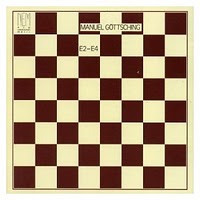 A bold and visionary statement from German guitarist Gottsching who masterfully blends subtle low key electric guitar improvisations with washes of ambient electronica to create a timeless otherwordly soundscape that draws in the listener. As stated this is the track sampled for the Balearic scene hit “Sueno Latino”.However to hear the full piece is a much greater joy.The familiar riff is spread over about 40 minutes while runs of improvisation drift in and out of the mix.The electronic backing is what makes this record so special though as it makes it impossible to gauge what era the music comes from.It simply hasn’t aged one bit. A unique record that will please lovers of many genres. –A
A bold and visionary statement from German guitarist Gottsching who masterfully blends subtle low key electric guitar improvisations with washes of ambient electronica to create a timeless otherwordly soundscape that draws in the listener. As stated this is the track sampled for the Balearic scene hit “Sueno Latino”.However to hear the full piece is a much greater joy.The familiar riff is spread over about 40 minutes while runs of improvisation drift in and out of the mix.The electronic backing is what makes this record so special though as it makes it impossible to gauge what era the music comes from.It simply hasn’t aged one bit. A unique record that will please lovers of many genres. –A
Les McCann “Layers” (1974)
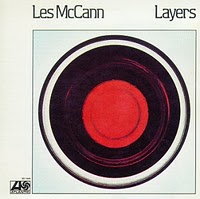 “Layers” is a late night listen made for those moments when you’re alone with a drink, a pile of cigarettes and a big chair to wallow in. The album is mellow and haunting, done with a whole barrage of electronic keys and psychedelic sounds. It smacks of the ’70s, but not the cheesy too often revisited ’70s that all those TV shows visit. This is my vision of the ’70s that I’d want to be the main player in. If I were a fictional character from then I’d want my theme song to be “The Dunbar High School Marching Band.” No fucker would mess with me then! I’d be sleeping with goddesses like Grace Jones (circa Nightclubbing cover) and I’d make Shaft look about as cool as Dr. Spock. Fantasies aside, “Layers” is an ultra cool listen, right up there with George Duke’s “The Inner Source,” but possibly even a little cooler. –NK
“Layers” is a late night listen made for those moments when you’re alone with a drink, a pile of cigarettes and a big chair to wallow in. The album is mellow and haunting, done with a whole barrage of electronic keys and psychedelic sounds. It smacks of the ’70s, but not the cheesy too often revisited ’70s that all those TV shows visit. This is my vision of the ’70s that I’d want to be the main player in. If I were a fictional character from then I’d want my theme song to be “The Dunbar High School Marching Band.” No fucker would mess with me then! I’d be sleeping with goddesses like Grace Jones (circa Nightclubbing cover) and I’d make Shaft look about as cool as Dr. Spock. Fantasies aside, “Layers” is an ultra cool listen, right up there with George Duke’s “The Inner Source,” but possibly even a little cooler. –NK
The Rolling Stones “Exile on Main St.” (1972)
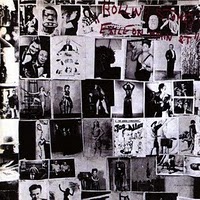 This is the shit! Inaccessible at first, this sprawling double album seems to emerge from its hazy inscrutability one song at a time (beginning with “Tumbling Dice,” of course, possibly the Stones best single), until, at last, you can accept the thing of a piece, which is, after all, necessary, lest you be left wondering what’s so great about a song like “Casino Boogie,” which needs its context to be fully appreciated as a great country-rock knock-off. This is only one example of the album’s textural complexity. “Rocks Off” is surely the greatest opening track on an album, and “Soul Survivor” the perfect close, summing up the mood of the whole with a great, lazy funkiness that would never be heard from the Stones again (or anyone else, for that matter). That on-the-verge-of-falling-apart feeling that pervaded Sticky Fingers is present here again, in spades, making Exile both a masterpiece, a casual pleasure, and my nominee for single greatest rock album there is. –Will
This is the shit! Inaccessible at first, this sprawling double album seems to emerge from its hazy inscrutability one song at a time (beginning with “Tumbling Dice,” of course, possibly the Stones best single), until, at last, you can accept the thing of a piece, which is, after all, necessary, lest you be left wondering what’s so great about a song like “Casino Boogie,” which needs its context to be fully appreciated as a great country-rock knock-off. This is only one example of the album’s textural complexity. “Rocks Off” is surely the greatest opening track on an album, and “Soul Survivor” the perfect close, summing up the mood of the whole with a great, lazy funkiness that would never be heard from the Stones again (or anyone else, for that matter). That on-the-verge-of-falling-apart feeling that pervaded Sticky Fingers is present here again, in spades, making Exile both a masterpiece, a casual pleasure, and my nominee for single greatest rock album there is. –Will
The Rolling Stones “Goats Head Soup” (1973)
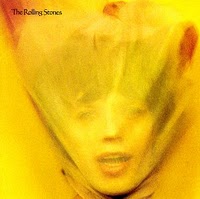 Well, the only thing sleazier than the Stones at their peak is the Stones in their detumescence. Naturally this album has a bad reputation, because it followed the greatest four-album streak in rock history. Poor Goats Head Soup. But this one’s mighty good, and particularly because of the sleaziness, and the bad vibes running through the whole thing. Think of it as a Beggars Banquet for the mid 70s. Where that one had a fighting spirit, this one just passes on the violence and injustice in the news. Where that one was horny one minute, by playing horny music, and celebrating the salt of the earth the next, by playing celebratory music, this one brags about anonymous groupies over lazy Chuck Berry riffs and asks, “Can You Hear the Music?” as if you couldn’t. Replete with downer riffs and misogynistic lyrics, it responds, in its way, to the decadence of the 70s, resigning itself to loss, and spiritual and social failure. Oh, yes sir, madam, Goats Head Soup is all that and a kinky album sleeve. –Will
Well, the only thing sleazier than the Stones at their peak is the Stones in their detumescence. Naturally this album has a bad reputation, because it followed the greatest four-album streak in rock history. Poor Goats Head Soup. But this one’s mighty good, and particularly because of the sleaziness, and the bad vibes running through the whole thing. Think of it as a Beggars Banquet for the mid 70s. Where that one had a fighting spirit, this one just passes on the violence and injustice in the news. Where that one was horny one minute, by playing horny music, and celebrating the salt of the earth the next, by playing celebratory music, this one brags about anonymous groupies over lazy Chuck Berry riffs and asks, “Can You Hear the Music?” as if you couldn’t. Replete with downer riffs and misogynistic lyrics, it responds, in its way, to the decadence of the 70s, resigning itself to loss, and spiritual and social failure. Oh, yes sir, madam, Goats Head Soup is all that and a kinky album sleeve. –Will
The Replacements “Don’t Tell a Soul” (1989)
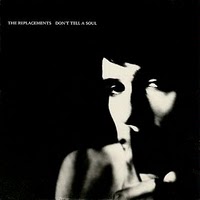 As a band who’ve historically been placed among the top dogs of the punk herd, it’s predictable that fans of The Replacements earlier material hate this break from the pack solely on principal. But taken away from those preconceptions, Don’t Tell a Soul is a is blatantly commercial, adult-rock winner that continues to highlight Westerberg’s talents as an excellent songwriter. The collapsing band turn in engaging, effortlessly heartbroken melodies on songs like “Back to Back,” “Asking Me Lies,” and the almost contemporary country-flavored “Achin’ to Be,” while “I’ll Be You” and “Talent Show” are hooky as hell. Only “I Won’t” flops as an unnecessary attempt to get rowdy and, yeah, sound like the “old” Replacements. Selling out rarely sounds this good. –Ben
As a band who’ve historically been placed among the top dogs of the punk herd, it’s predictable that fans of The Replacements earlier material hate this break from the pack solely on principal. But taken away from those preconceptions, Don’t Tell a Soul is a is blatantly commercial, adult-rock winner that continues to highlight Westerberg’s talents as an excellent songwriter. The collapsing band turn in engaging, effortlessly heartbroken melodies on songs like “Back to Back,” “Asking Me Lies,” and the almost contemporary country-flavored “Achin’ to Be,” while “I’ll Be You” and “Talent Show” are hooky as hell. Only “I Won’t” flops as an unnecessary attempt to get rowdy and, yeah, sound like the “old” Replacements. Selling out rarely sounds this good. –Ben
Ace Frehley “Ace Frehley” (1978)
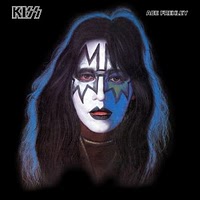 Ace was always the coolest member of KISS, his couldn’t care less attitude contrasting with poutin’ Paul and the demon, and his meat and potatoes guitar style featuring a wide, spaced out vibrato, was central to the KISS sound. It’s no shock that of the four ’78 solo albums, Ace’s is always the favorite, and I’d go as far to say it stacks up against any of the original KISS studio sides. The key is Ace’s lack of ambition, Ace Frehley being a straight-ahead hard rock record with few deviations, “Rip It Out” dropping the hammer as the deliriously wasted “Ozone,” scatterbrained “Wiped-Out” and snortin’ slammer “Snowblind” draw you into Ace’s chemically-addled world. Ace manages to mix things up as well, his cover of the Russ Ballard penned glam-stomp “New York Groove” turning into a hit, “What’s on Your Mind?” being a hidden power pop gem, and the album closing with the cool chill-out instrumental, “Fractured Mirror.” –Ben
Ace was always the coolest member of KISS, his couldn’t care less attitude contrasting with poutin’ Paul and the demon, and his meat and potatoes guitar style featuring a wide, spaced out vibrato, was central to the KISS sound. It’s no shock that of the four ’78 solo albums, Ace’s is always the favorite, and I’d go as far to say it stacks up against any of the original KISS studio sides. The key is Ace’s lack of ambition, Ace Frehley being a straight-ahead hard rock record with few deviations, “Rip It Out” dropping the hammer as the deliriously wasted “Ozone,” scatterbrained “Wiped-Out” and snortin’ slammer “Snowblind” draw you into Ace’s chemically-addled world. Ace manages to mix things up as well, his cover of the Russ Ballard penned glam-stomp “New York Groove” turning into a hit, “What’s on Your Mind?” being a hidden power pop gem, and the album closing with the cool chill-out instrumental, “Fractured Mirror.” –Ben
Chic “Risque” (1979)
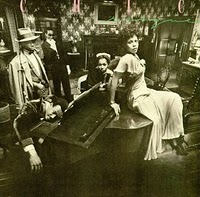 Niles Rodgers said that he formed Chic as a kind of black disco version of Roxy Music. And, in turn, the slick syncopated grooves with those art-deco grand piano splashes wound up influencing everything from early rap (the riff from “Rapper’s Delight” is taken straight from “Good Times”) to Madonna. Perhaps it’s their use of minor keys but Chic’s tunes all have this melancholy air about them – a bittersweet portrait of the swinging, hedonistic 70s and all that followed in its wake. It’s beautiful music — none more than the sensual “Warm Summer Night” with its circular structure punctuated by “Papi!” — from a gritty decade. –Singer Saints
Niles Rodgers said that he formed Chic as a kind of black disco version of Roxy Music. And, in turn, the slick syncopated grooves with those art-deco grand piano splashes wound up influencing everything from early rap (the riff from “Rapper’s Delight” is taken straight from “Good Times”) to Madonna. Perhaps it’s their use of minor keys but Chic’s tunes all have this melancholy air about them – a bittersweet portrait of the swinging, hedonistic 70s and all that followed in its wake. It’s beautiful music — none more than the sensual “Warm Summer Night” with its circular structure punctuated by “Papi!” — from a gritty decade. –Singer Saints
Richard & Linda Thompson “I Want to See the Bright Lights Tonight” (1974)
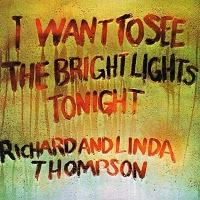 Thompson’s second album, and first With wife Linda on board as a lead vocalist, I Want to See the Bright Lights Tonight, more than any, goes a long way toward establishing his reputation as a gloom-merchant. And man, with heavy ballads like “Withered And Died,” “Has He Got A Friend For Me,” “The End Of The Rainbow,” and the stark “The Great Valerio,” the floor here is certainly littered with crushed dreams, sealed fates, abandonment, and all around misery. Even the uptempo tracks like “When I Get to the Border” and “I Want to See the Bright Lights Tonight” are fueled by a weary desperation, Thompson’s biting electric guitar sounding more like frayed nerves than any sort of celebratory riffing. In fact, the album would probably be near-unbearable if the performances weren’t so beautiful, the songs so well written, and the atmosphere so unusually compelling, Linda Thompson’s voice in particular being incredibly well suited to the material. But yeah, your ultimate acceptance of this album will probably rest on how much despair you can handle in one sitting, but given a chance to work it’s way into you, I Want to See the Bright Lights Tonight won’t let go. -Ben
Thompson’s second album, and first With wife Linda on board as a lead vocalist, I Want to See the Bright Lights Tonight, more than any, goes a long way toward establishing his reputation as a gloom-merchant. And man, with heavy ballads like “Withered And Died,” “Has He Got A Friend For Me,” “The End Of The Rainbow,” and the stark “The Great Valerio,” the floor here is certainly littered with crushed dreams, sealed fates, abandonment, and all around misery. Even the uptempo tracks like “When I Get to the Border” and “I Want to See the Bright Lights Tonight” are fueled by a weary desperation, Thompson’s biting electric guitar sounding more like frayed nerves than any sort of celebratory riffing. In fact, the album would probably be near-unbearable if the performances weren’t so beautiful, the songs so well written, and the atmosphere so unusually compelling, Linda Thompson’s voice in particular being incredibly well suited to the material. But yeah, your ultimate acceptance of this album will probably rest on how much despair you can handle in one sitting, but given a chance to work it’s way into you, I Want to See the Bright Lights Tonight won’t let go. -Ben
The Running Man “The Running Man” (1972)
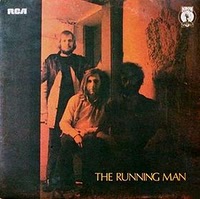 Prog!!! Yep, but not “fantastic” prog like mid ‘70s Yes or Rush, rather Running Man is bluesy, heavy, mid tempo, jammin’ ploddy plod kind of prog like Colosseum. Running Man struck me not so much as one who loves prog in general, but on a more visceral, a “kid in awe” level. This LP has the sheen of sweet, sweaty unattainable guitar skills high school boys of a certain era would die to posses. In other words, so rockin’!! –Nipper
Prog!!! Yep, but not “fantastic” prog like mid ‘70s Yes or Rush, rather Running Man is bluesy, heavy, mid tempo, jammin’ ploddy plod kind of prog like Colosseum. Running Man struck me not so much as one who loves prog in general, but on a more visceral, a “kid in awe” level. This LP has the sheen of sweet, sweaty unattainable guitar skills high school boys of a certain era would die to posses. In other words, so rockin’!! –Nipper
Tim Buckley “Blue Afternoon” (1969)
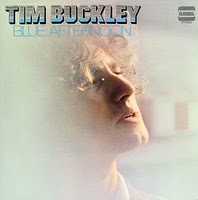 Blue Afternoon is another brilliant album from the incredibly gifted Buckley, an artist in the truest sense of the word, a man who’s sheer restlessness would mark him out as one of rock music true innovators, in the year of revolution Buckley chose to step back and take a good long hard look at himself, whilst others were prepared to blame others for their ill’s Buckley was prepared to face the monster head on and for that he stands above and alone from his more famous contemporaries, Blue Afternoon is not only a fascinatingly, complex, brutally honest album it remains as relevant today as it did back in ’68, this is no curio from a lost era, so whilst The Beatles, Stones and Dylan’s music perfectly evokes those tumultuous times, Buckley’s album is a timeless reminder of the man’s obvious talents. –Derek
Blue Afternoon is another brilliant album from the incredibly gifted Buckley, an artist in the truest sense of the word, a man who’s sheer restlessness would mark him out as one of rock music true innovators, in the year of revolution Buckley chose to step back and take a good long hard look at himself, whilst others were prepared to blame others for their ill’s Buckley was prepared to face the monster head on and for that he stands above and alone from his more famous contemporaries, Blue Afternoon is not only a fascinatingly, complex, brutally honest album it remains as relevant today as it did back in ’68, this is no curio from a lost era, so whilst The Beatles, Stones and Dylan’s music perfectly evokes those tumultuous times, Buckley’s album is a timeless reminder of the man’s obvious talents. –Derek
Neil Young “Tonight’s the Night” (1975)
 Neil’s finest record? Hard to say, but it’s my personal favorite: strange as only Neil can be, frightening, funny, sad, and sloppy as all-get-out, all the while being beautiful. Probably one of the four or five great guitar albums, too. It has that tossed-off feel that can either make or break a record; and it makes this one, in the same way that Exile on Main St. or the Velvets’ eponymous are made, by sounding so intense and so casual at the same time. Emotional intensity and casualness is a tough combination to arrive at, but, somehow, some can manage it – Neil more often than anyone, I dare say. And I can’t quite say why (though I can begin by remarking on the slide guitar and piano), but “Albuquerque” is my favorite Neil Young song, with that mournful chorus, “Oh, Albuquerque…” However often the album has been described as having the atmosphere of a wake… well, it has the atmosphere of a wake. –Will
Neil’s finest record? Hard to say, but it’s my personal favorite: strange as only Neil can be, frightening, funny, sad, and sloppy as all-get-out, all the while being beautiful. Probably one of the four or five great guitar albums, too. It has that tossed-off feel that can either make or break a record; and it makes this one, in the same way that Exile on Main St. or the Velvets’ eponymous are made, by sounding so intense and so casual at the same time. Emotional intensity and casualness is a tough combination to arrive at, but, somehow, some can manage it – Neil more often than anyone, I dare say. And I can’t quite say why (though I can begin by remarking on the slide guitar and piano), but “Albuquerque” is my favorite Neil Young song, with that mournful chorus, “Oh, Albuquerque…” However often the album has been described as having the atmosphere of a wake… well, it has the atmosphere of a wake. –Will


